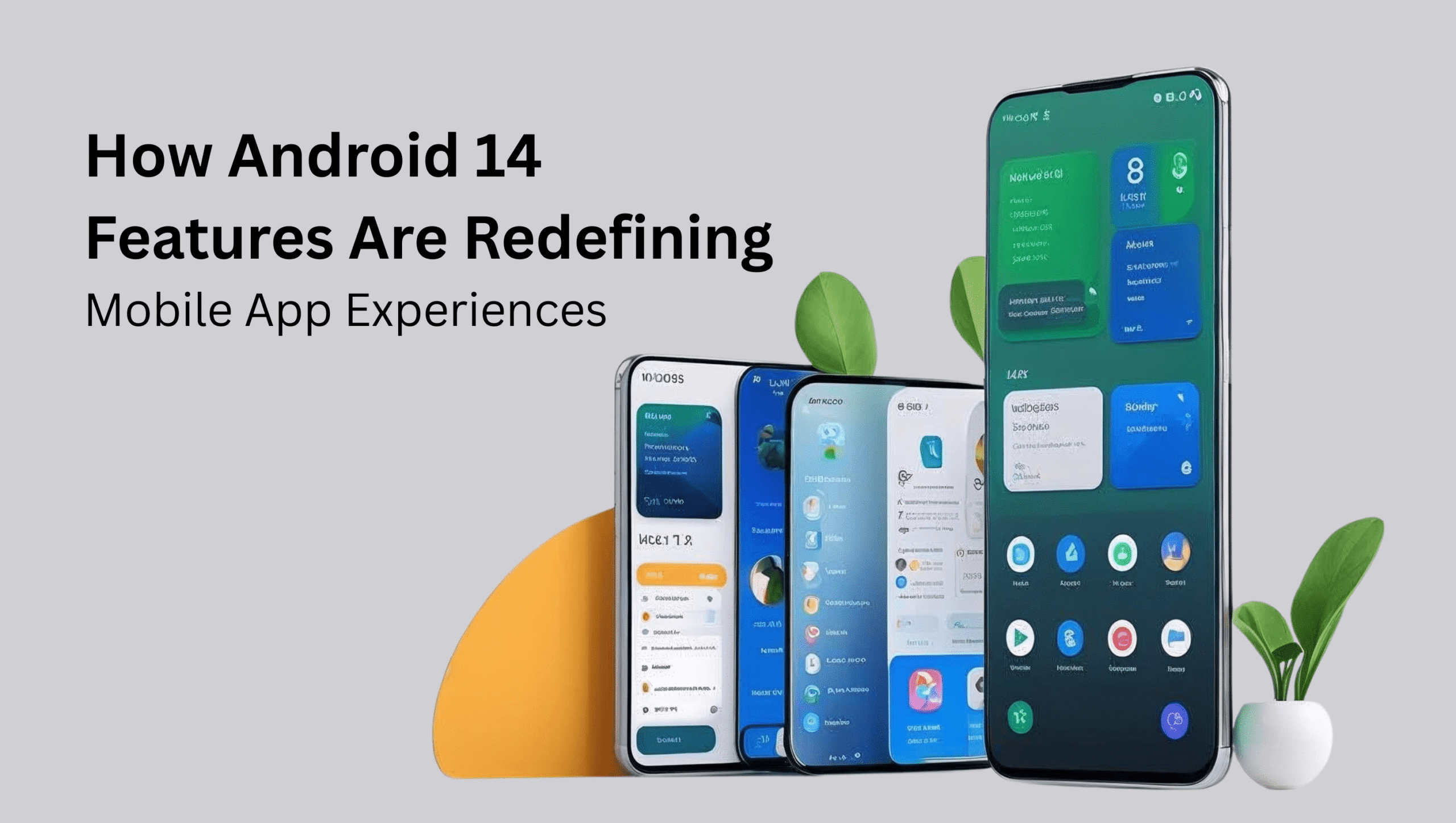Android powers over 70% of smartphones globally (StatCounter, 2025). Every major update to Android impacts millions of users and thousands of businesses that depend on apps. With Android 14, Google continues its focus on performance, security, customization, and accessibility, setting new expectations for how mobile apps should function.
For developers and businesses relying on Android App Development Services, understanding these updates is critical. It helps deliver better user experiences, meet platform standards, and stay competitive in a saturated market.
This article breaks down Android 14’s key features, their technical implications, and how they are changing mobile app development in practical terms.
Android 14 at a Glance
Android 14 brings refinements rather than radical changes. Its primary focus areas include:
-
Enhanced user control over data and privacy
-
Better support for foldable and large-screen devices
-
Improved background task efficiency
-
Accessibility upgrades
-
Performance improvements
Each of these areas affects how apps behave and perform across different hardware and usage contexts.
Key Android 14 Features Changing App Development
1. Regional Preferences API
Android 14 introduces a Regional Preferences API. Users can now specify:
-
Temperature units (Celsius/Fahrenheit)
-
Week start day
-
Number formatting preferences
Developer Impact
Apps can dynamically adapt to user settings, increasing localization accuracy. No need for hardcoding or user-specific overrides.
Code Snippet:
Use Case
An app providing weather forecasts or financial data can adjust formatting based on user-defined settings without prompting for input.
2. Background Task Changes
Battery efficiency remains a focus in Android 14. Apps must now:
-
Use exact alarms sparingly
-
Avoid aggressive background syncs
-
Rely more on JobScheduler or WorkManager
Developer Guidance
Android 14 restricts alarm delivery in Doze mode unless the app has exact alarm permission. Developers must adapt their apps to use deferred execution or be exempted through specific permissions.
| Task Type | Recommended API |
|---|---|
| Periodic background | WorkManager |
| Time-based trigger | AlarmManager (with caution) |
| Long tasks | ForegroundService |
3. Improved Large-Screen and Foldable Support
Android 14 optimizes layout behaviors for foldables, tablets, and multi-window devices.
Developer Considerations
-
Use WindowManager API to detect screen posture
-
Implement responsive UIs with ConstraintLayout or Jetpack Compose
Code Sample:
Importance for Android App Development Services
A skilled Android app development company ensures apps support multiple screen types, especially as foldable adoption increases.
4. Partial Screen Recording
Android 14 allows users to record a single app window instead of the full screen. This adds privacy and usability.
Developer Tips
Apps should handle screen recording flags properly and avoid leaking sensitive data via overlays.
Best Practices:
-
Use
FLAG_SECUREfor sensitive screens -
Monitor media projection APIs for app recordings
5. Accessibility Enhancements
Android 14 brings several improvements:
-
Larger fonts (up to 200%)
-
Non-linear font scaling
-
Improved magnification gestures
Developer Actions
Apps must use sp units consistently. Hardcoded sizes can break with larger font settings.
| Size Unit | Recommended? | Description |
|---|---|---|
| sp | Yes | Scales with user settings |
| dp | No | Fixed, not scalable |
6. Foreground Service Changes
Foreground services must now declare valid use types in the manifest. Misuse leads to exceptions.
Valid Use Cases
-
Media playback
-
Navigation
-
VoIP calls
Example Manifest Entry:
Benefit
This change helps the system manage resources better and reduces battery drain.
7. Health Connect Becomes Standard
Health Connect, Google’s platform for sharing health and fitness data across apps, is now integrated into Android 14.
For Developers
-
Use Jetpack Health APIs
-
Request specific data types (e.g., sleep, heart rate)
Sample Use
A fitness app can now pull sleep data recorded by a smartwatch and integrate it into its insights.
Security and Privacy Upgrades
1. Improved PIN Security
Users can now skip confirmation after correct PIN entry, speeding up phone unlocks.
2. Restricted File Access
Apps targeting Android 14 get stricter scoped storage rules:
-
No default access to all files
-
Must use Storage Access Framework
| Access Type | API Requirement |
|---|---|
| Media files | MediaStore API |
| Custom documents | Storage Access Framework (SAF) |
| App-specific storage | Internal cache/directories only |
How Android 14 Affects Android App Development Services
1. Code Maintenance Complexity
New APIs and restrictions require regular audits and updates. Companies offering Android App Development Services must validate compatibility with Android 14 during each release cycle.
2. Testing Across Multiple Devices
Support for foldables, tablets, and dynamic screen postures means developers need to test across:
-
Emulators with varied screen sizes
-
Physical foldables (e.g., Pixel Fold)
-
Multi-window setups
3. Privacy-Focused Design
More permissions now trigger user prompts. Android 14 encourages granular, just-in-time permissions. Developers should refactor legacy code accordingly.
Best Practices for Android 14 Development
-
Target API Level 34 for full feature access
-
Test for all font scale settings using Accessibility options
-
Use Jetpack Compose for responsive and adaptive UIs
-
Monitor performance metrics using Android Vitals
-
Avoid deprecated APIs like AsyncTask
Choosing the Right Android App Development Company
A competent Android app development company ensures apps not only function on Android 14 but also leverage its new features. Look for teams with:
-
Experience in using Jetpack libraries
-
Knowledge of Material You and dynamic theming
-
Continuous integration and testing pipelines
-
Active monitoring and update policies
Final Thoughts
Android 14 emphasizes user choice, system efficiency, and broader device support. These shifts require technical adaptation rather than marketing claims. Developers and businesses must carefully redesign parts of their apps to stay compliant and performant.
With rising device diversity and tighter privacy rules, working with expert Android App Development Services has become a necessity—not a choice.







0 Comments